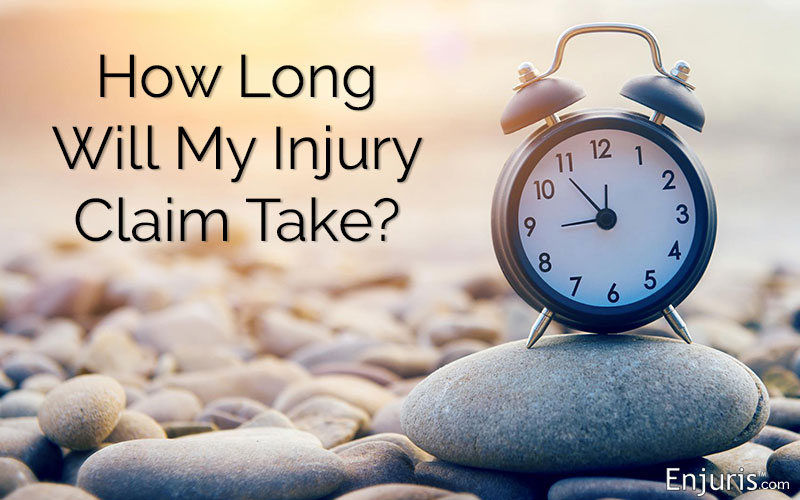Wrongful death cases are among the most difficult to handle – and Colorado doesn’t make it any easier
At their heart, these are personal injury cases that hinge on negligence. And in Colorado, just like every other state, attorneys have to prove every element of negligence in order to win.
However, Colorado has a few quirks that make it stand out from other states. We will run through what has to be established before illustrating what makes Colorado different.
What is a wrongful death case?
A wrongful death claim is a civil case brought by the remaining family members of a decedent who passed away because of defendant’s negligent actions. This sort of claim is meant to compensate the surviving family members, who will no longer be able to rely on the decedent’s income, nor his guidance, love, affection, care or support.
There are two types of cases that survivors can pursue: survival actions and wrongful death. Survival actions pay for damages suffered by the decedent as a result of the defendant’s actions. This includes medical bills prior to death, pain and suffering and other damages before death. These damages are paid to the decedent’s estate, which is then paid to the beneficiaries.
Wrongful death actions are intended to compensate the family members for damages such as the loss of emotional, financial and other support the decedent had been contributing to the household.
Tweet this
These claims are usually a two-step process. Before a wrongful death claim can be filed, the family usually has to appoint a personal representative in probate court to represent the decedent’s estate. That individual will then bring a civil suit on behalf of the family.
Only certain people can bring claims:
- Spouses
- Partners
- Children
- Siblings
- Those who suffer financially
The personal representative “is” the decedent and has to act in the best interests of the estate, or else he can be removed by other interested parties. Once he is authorized, he can bring a wrongful death case. These sorts of cases can be brought for all types of wrongful deaths: car accident cases, personal injury, medical malpractice and even murder.
As a civil case, the burden of proof for a plaintiff to prove is “preponderance of the evidence.” This means that, more likely than not, the defendant was negligent in his actions. This is far less than the burden of proof in criminal court, which is “beyond a reasonable doubt.” This can mean a win in civil court and a loss in criminal court for the same case with the same facts.
What type of damages can a representative try to recover?
A personal representative can try to recover three types of damages:
- Economic: These are financial contributions the decedent would have made to the survivors if he or she lived. These can include:
- The loss of the decedent’s earnings;
- The loss of benefits (medical coverage, pension plans, etc.);
- Loss of inheritance; and
- Funeral and medical expenses.
- Non-economic: These are intangible damages that are challenging to put a number on, such as:
- Loss of guidance, care, advice, and nurturing from the decedent;
- Loss of consortium from a spouse;
- Loss of companionship and love; and
- Mental anguish, suffering and pain.
- Punitive: These damages are meant to punish the defendant. These are not available in some states or against most governmental agencies.
There are various other methods used to calculate how to pay victims in wrongful death cases. Courts sometime look at how the victim would have provided for surviving family members based upon income at the time and actuarial lifetime expectancy; this is called the “pecuniary loss rule” or “valuation by human capital.”
Who can be sued in a wrongful death case in Colorado?
Almost anyone can be sued for wrongful death, except for those who have immunity because of their position within governmental agencies. This can vary from state to state and should be checked before filing a case.
In Colorado, claims against the government have to be filed within 182 days.
These are brought under Colorado’s Governmental Immunity Act, C.R.S. §24-10-106(1). These claims normally involve the negligence of a public employee and are brought under a vicarious liability theory.
Claims can also be brought against the employee for willful and wanton behavior, but that would be against the individual employee, not the employer, and the government would not be on the hook for the employee’s actions.
Otherwise, any individual or company can be sued for wrongful death. Here are just a few examples:
- Doctor who performed a faulty operation & the hospital that employs him;
- Driver who ran over your family member & the company that employs him;
- Driver on the freeway who hit your family member;
- The designer of a product that failed to provide adequate warnings; and
- The company that made the dangerous product that exploded killing your grandfather, as well as everyone along the chain of distribution.
The representative of the estate will have to prove the same elements of negligence that the decedent would’ve had to prove if he or she were alive. This means that the defendant owed the plaintiff a duty of care, the duty was breached, this breach was a direct and proximate cause of the death, and this breach caused damages.
Damage caps for wrongful death in Colorado
Colorado has different provisions when negligence results in a person’s death. While we’d like to think that damages in the case of death would be all of the money, they are unfortunately capped. For wrongful death, non-economic damages in wrongful death cases are capped at $341,250 ($250,000 plus inflation) for deaths occurring after January 1, 1998.
On caps applying to wrongful death, the Boulder Bar Association also says:
Alternatively, the law makes available a “solatium” whereby a claiming survivor who does not wish to undertake the task of proving non-economic losses may, after proving that the death was wrongful under the law, automatically receive $68,250 [$50,000 plus inflation] as total compensation for non-economic losses.
This cap is not applied if the court finds that the death is a result of felonious killing such as murder or manslaughter. Recovery under this exception does not require the defendant already being convicted of the felony or even charged with a felony.
How long do I have to file a Colorado wrongful death case?
Wrongful death claims are governed by state law. Colorado is very particular in who gets to file when. The Colorado statute of limitations for filing is two years, but the Wrongful Death Act creates two tiers for filing.
According to C.R.S. §13-21-201, only the decedent’s spouse can file a claim for wrongful death during the first year, with three exceptions:
- The spouse can file a written election to include the heirs as plaintiffs;
- If the decedent is unmarried, the heirs or a designated beneficiary can serve as plaintiffs; or
- If the decedent died without a spouse, heirs, or a designated beneficiary, then the decedent’s parents can file a wrongful death claim.
During the second year, any of the classes (spouse, heirs or designated beneficiary) can file a wrongful death lawsuit, in Colorado.
More resources
If you haven’t found an attorney, check out our Colorado law firm directory. More on special circumstances involving a wrongful death in Colorado: murder, death of a child, who can file a lawsuit, and other questions.

Worksheet with questions to ask a personal injury attorney to help determine if he or she will be a good fit for your case
Download in PDF format
More help on hiring the best attorney for your Colorado wrongful death case:
Need a lawyer?
What does an injury lawyer do?
A personal injury lawyer helps individuals who have sustained injuries in accidents to recover financial compensation. These funds are often needed to pay for medical treatment, make up for lost wages and provide compensation for injuries suffered. Sometimes a case that seems simple at first may become more complicated. In these cases, consider hiring an experienced personal injury lawyer. Read more


















